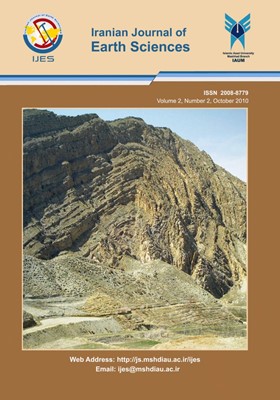Combating Climate Change: The Role of Renewable Energy and Energy Efficiency
محورهای موضوعی : MineralogyE. Uyigue 1 , O. A. Ediang 2 , A. A. Ediang 3
1 - Executive Director, Community Research and Development Centre (CREDC),266 Ugbowo-Lagos Road, Benin City
2 - Nigerian Meteorological Agency, PMB 1215 Oshodi Lagos, Nigeria.
3 - Nigerian Meteorological Agency, PMB 1215 Oshodi Lagos, Nigeria.
کلید واژه: Climate Change, Energy efficiency, socio-economic systems,
چکیده مقاله :
Climate change and its possible impacts on the environment and socio-economic systems now constitute the most important environmental problem facing mankind in the 21st century. Climate change will increase poverty and hardship, endanger food security, destabilize economies, decrease food and water and create social insecurity in many countries and undermine our goals for achieving sustainable development. An in-depth analysis was carried out on the nature and characteristics of climatic changes and the roles of renewable energy and energy efficiency in combating the threat of climate change especially in relation to mitigation measures. Energy policy is therefore becoming an increasingly important tool for medium and long term planning to mitigate GHG emissions and to adapt to climate change especially in the developing countries. This paper highlights the fact that research efforts for the rest of the 21st century be directed towards harnessing renewable energies like the solar, wind and geothermal energies to replace the present day burning of fossil fuel energy for lighting, heating, cooling, manufacturing, cooking, transport, entertainment, etc. This will help to reduce the emission of green house gases (GHGs) and ozone depletion and in the long run the global warming effect.
Climate change and its possible impacts on the environment and socio-economic systems now constitute the most important environmental problem facing mankind in the 21st century. Climate change will increase poverty and hardship, endanger food security, destabilize economies, decrease food and water and create social insecurity in many countries and undermine our goals for achieving sustainable development. An in-depth analysis was carried out on the nature and characteristics of climatic changes and the roles of renewable energy and energy efficiency in combating the threat of climate change especially in relation to mitigation measures. Energy policy is therefore becoming an increasingly important tool for medium and long term planning to mitigate GHG emissions and to adapt to climate change especially in the developing countries. This paper highlights the fact that research efforts for the rest of the 21st century be directed towards harnessing renewable energies like the solar, wind and geothermal energies to replace the present day burning of fossil fuel energy for lighting, heating, cooling, manufacturing, cooking, transport, entertainment, etc. This will help to reduce the emission of green house gases (GHGs) and ozone depletion and in the long run the global warming effect.


